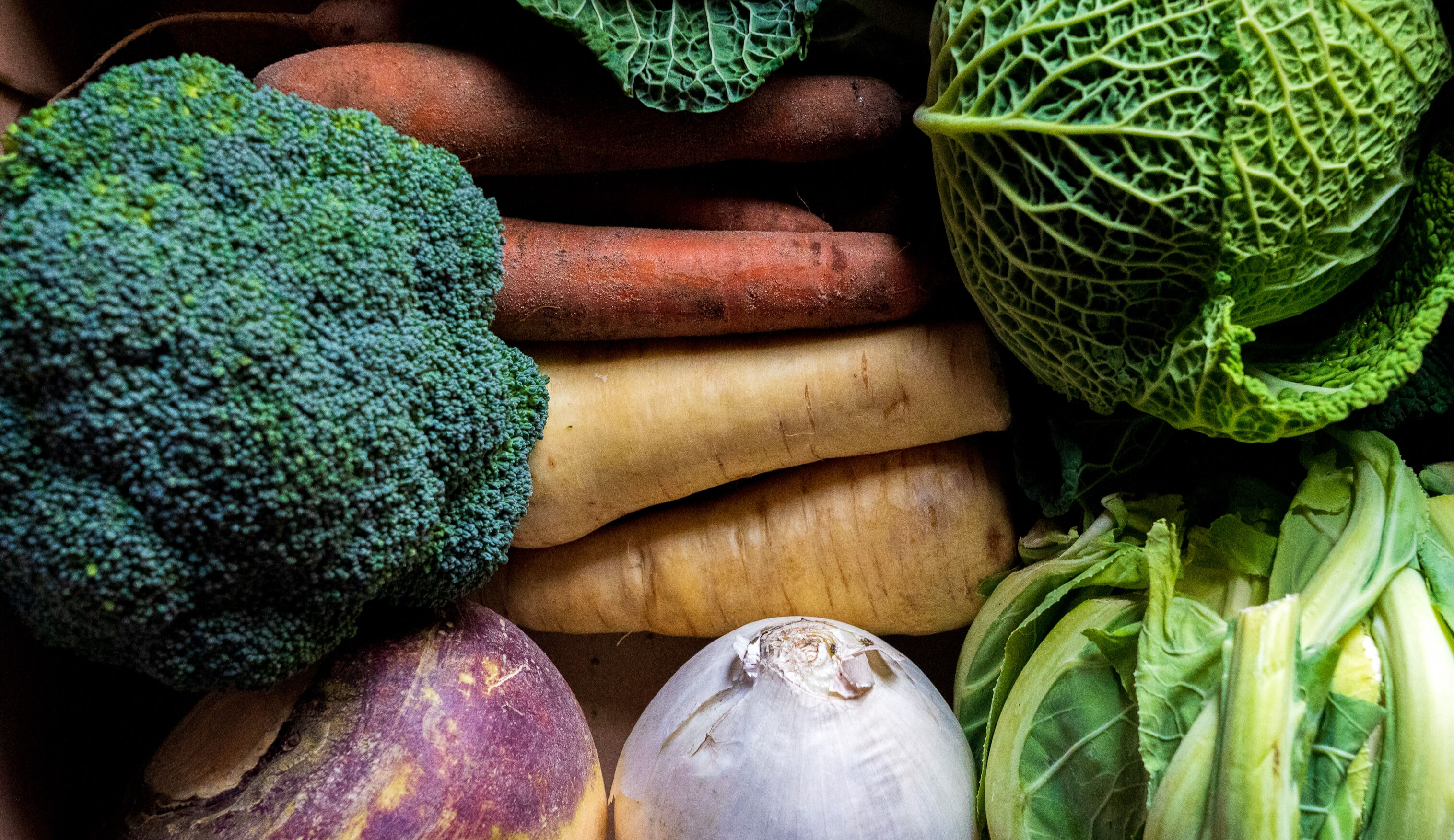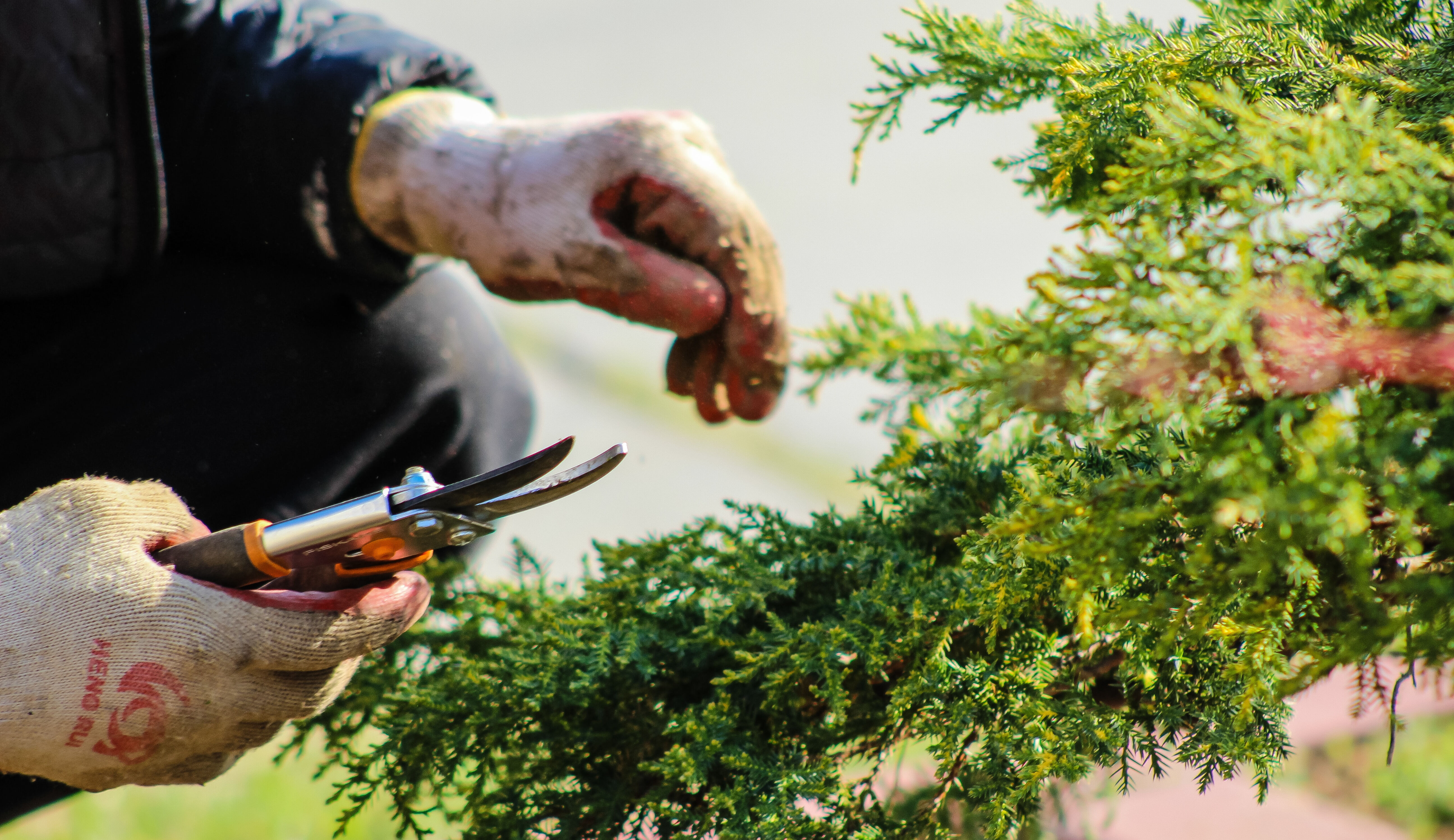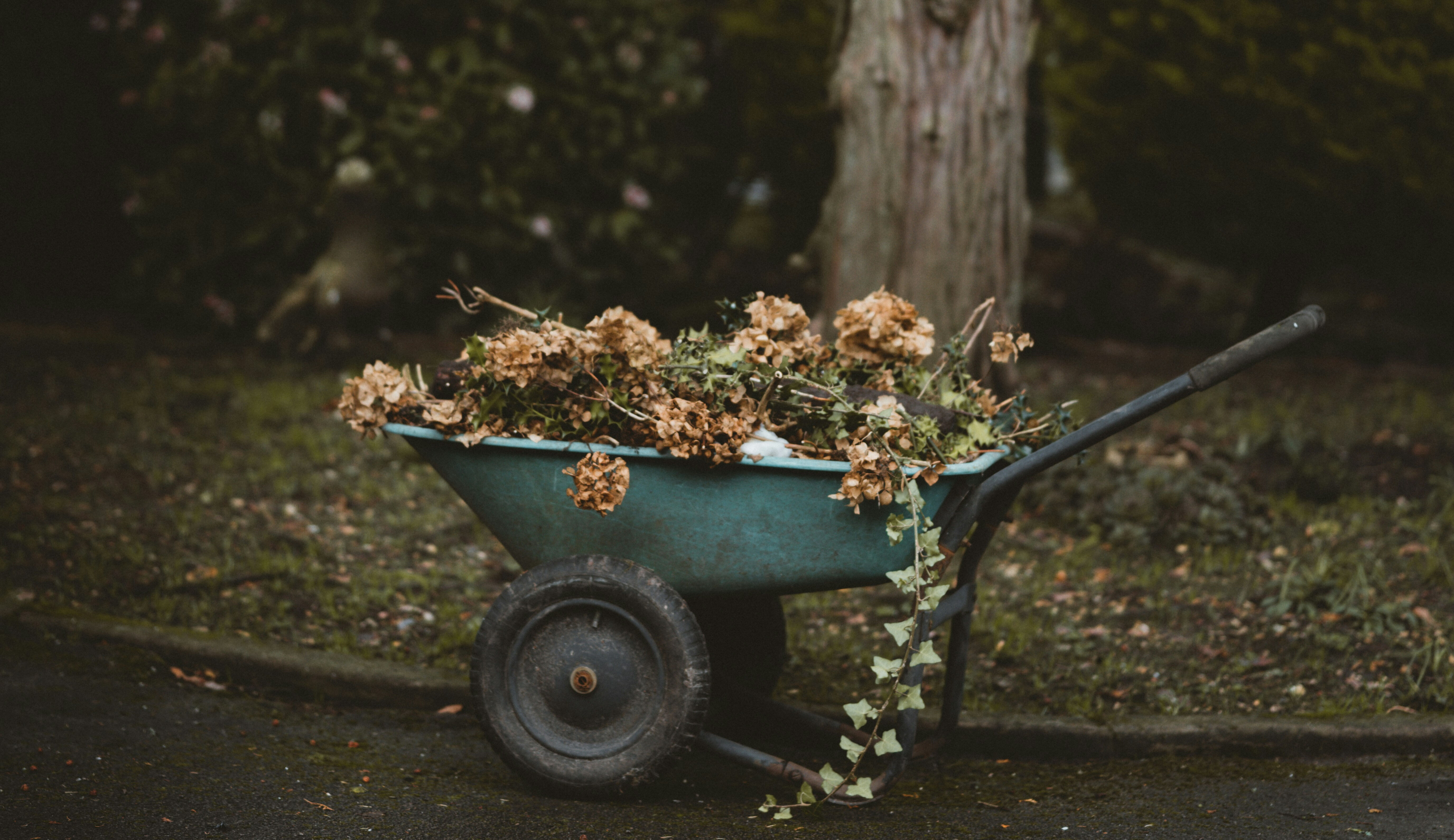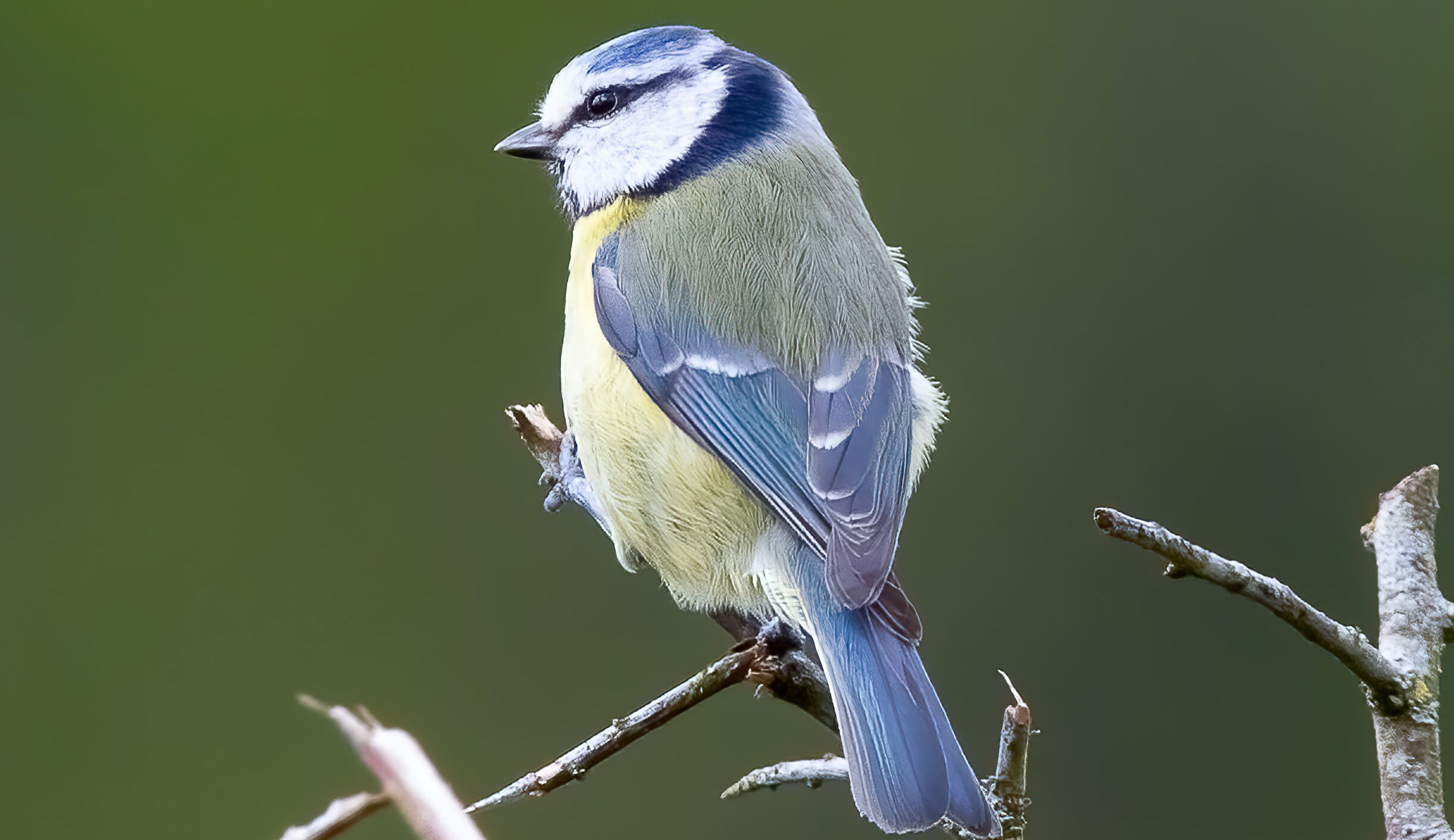
Gardening in Winter: Our Top Tips
Don't let the cold weather keep you away from your garden! While things may seem a little dull compared to your gloriously green outdoor haven in the spring and summer months, your winter garden is still brimming with life, and requires a lot of work too! There are plenty of tasks for you to tackle, whether it be harvesting hardy vegetables, pruning shrubs, tidying up your garden or even turning it into a shelter for wildlife! That's why we're here to help with our top tips and tricks to keep your garden thriving throughout the winter season. So, pull on your wellies, grab your gardening gloves and tools, and get things underway!
Wondering what you can grow in winter? Vegetables are good winter crops!
Contrary to popular belief, vegetables can still be grown throughout the colder months, and some plants actually thrive during the British winter! Think of hardy vegetables such as turnips, Brussels sprouts and kale, which are all harvested between November and March. These cold-loving vegetables will crop throughout winter and require a fair amount of attention! You will just need to keep a close eye on the weather forecast though, as when temperatures really drop, your soil must be protected from frost and heavy snow. A good way to achieve this is by building a cold frame or, more simply, by using horticultural fleece or cloches to cover your crops on particularly chilly days. And for those of you who are lucky enough to own a greenhouse, you'll want to put it to use, as it’s perfect for keeping frost, wind and snow at bay. It's best to plant the vegetables mentioned above in summer or early autumn, while the soil is still relatively warm, and the increased daylight ensures good germination. But if you’re too late to the party, fear not… There is always next year! And, if you read on, we’ve got alternative suggestions about what you can get in the ground now…


What to plant now the UK winter has begun?
Winter may not be the prime time for planting a vast array of fruit, veg and flowers, but that’s not to say your hands are completely tied. Overwintering broad beans can be sown outside in mild areas or under cloches, in locations where the soil is well drained. You can even start them off on a sunny windowsill to make them a success. The end of the year is also a good moment to plant shallot, onion and garlic sets, again in mild areas where there is good drainage. So long as first frosts haven’t set in and the ground isn’t too wet (granted we’ve had our fair share of rain of late) you can also plant bare-root fruit trees. Although these are dormant when planted, by getting them in the ground at this time of year, you give them a full season to grow when temperatures pick up again. What’s more, the great thing about fruit trees is that there are so many types to choose from – apple and pear trees are classics of course, but you could give plums, cherries or even gooseberries a go. Similarly, bare-root roses and hedging can be added to your garden around about now too. Last but not least, why not plant rhubarb and asparagus crowns, again avoiding waterlogged patches of earth. Sowing crops now outside of the busy spring and summer seasons will give you a far richer harvest throughout the year to come! Plus, it’ll make winter gardening all the more enjoyable.
What garden jobs can you do? It's the best time to get pruning!
Winter is a crucial period for weeding, turning over mud with a rake, and pruning certain plants in your garden to ensure strong and healthy growth during the warmer months to come. Preparation is key! Pruning is the trimming and removal of dead branches and stems, which reduces the risk of disease and allows you to clearly see your plant's structure. Roses, shrubs, trees and fruit plants are common species that really benefit from winter pruning, due to them being dormant during colder weather. Our top tip is to make sure that your pruning tools are clean and sharp before beginning, as this also reduces the risk of spreading disease among your plants.


Spruce up your tools and get set for spring!
Speaking of using clean and sharp tools, winter is the perfect time to give your garden tools a bit of TLC! Throughout the year, and particularly during winter, your garden tools are likely to gather a lot of dirt, as well as rust, which can impact their efficiency. When it comes to cleaning your tools, we suggest using warm, soapy water and giving them a really good scrub. It's vital that you then dry your tools thoroughly in order to prevent any further rusting. As well as a good clean every now and then, your tools require semi-frequent sharpening too! Given that your lawn and plants need tending to less at this time of year, winter is the perfect time to tick this job off your to-do list, so your garden tool kit is optimised and ready for use in spring! Make the most of the quieter period before everything bursts forth into life again! In addition to tools, winter is also a good time to carry out other DIY jobs in your garden, such as painting fences or repairing a broken gate. If you tackle these tasks now, you'll be able to put your full focus towards planting when the warmer weather arrives!


There is still time to plant bulbs
While planting is mainly reserved for spring, there is still time in winter to get bulbs in the ground. You can even plant them as late as February, so long as the ground isn’t frozen over. Bulbs such as snowdrops and crocuses – as well as tulips and daffodils – are the ideal choice, as they are resistant to harsh temperatures, and will bloom beautifully when the weather starts to warm up again. They tend to surface pretty early, while the majority of other plants remain dormant, which adds to their charm. Just make sure to plant your bulbs as soon as you get them, as there is a risk of them blooming poorly if they have been stored for a long time. The wonderful thing about gardening is that it teaches us to embrace the present season and patiently await the next. If you get planting your bulbs now – in pots, window boxes or directly in the ground – then, despite the current dank darkness, before you know it you'll be able to enjoy a burst of colour in your garden, when the warmer days return! And if that’s not enough to give you something to look forward to, why not begin planning your spring-summer garden? Nothing's stopping you from getting ahead of the game and deciding which seeds to purchase for new growth in 2025!
Look out for the birds that visit your garden
Your garden may feel a bit bare in winter compared to other seasons, however a wide variety of bird species are sure to bring it to life! From Robins to Blue Tits and Greenfinches, you may notice a lot of magnificent visitors at this time of year, on the lookout for food, water and shelter. Winter can be a particularly difficult period for these birds due to the cold temperatures, that cause a drop in their body heat and prevent them from being able to freely forage for insects, due to hardened soil. So, it's important to give them a helping hand, in return for the beauty they bring to your garden! You can do this by filling up birdfeeders with seeds, nuts, fruits and grains, so that all species are satisfied! It's also useful to leave fresh water in an easily-accessible place, such as a bird bath or a dish left outside. Just make sure these sources don’t freeze over! And, when it comes to shelter, think about installing a bird box or two in your garden. Exposure to extreme elements can be dangerous for birds, so this small gesture will go a long way!


Wrap up warm and enjoy your garden!
While winter may well bring cold temperatures and shorter, darker days, it doesn't mean you can't still be out and about in your garden, enjoying the liberty of your own personal outdoor space. There are plenty of activities to be getting on with! Instead of being put off by the uninviting outdoors, layer up with a cosy fleece and jacket, and make the most of your winter garden. After all, curling up in your loungewear with a hot cup of tea will feel all-the-more deserved once you’ve got those gardening jobs done!